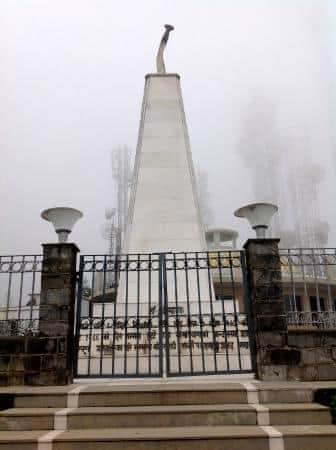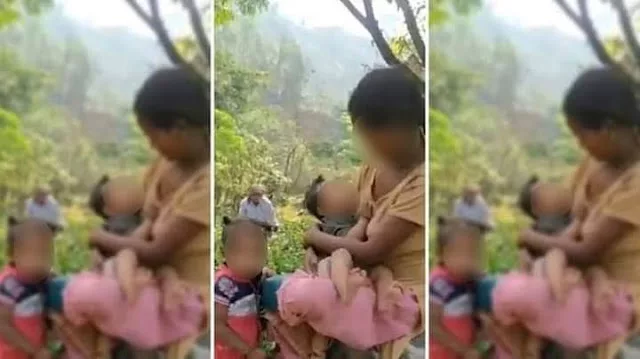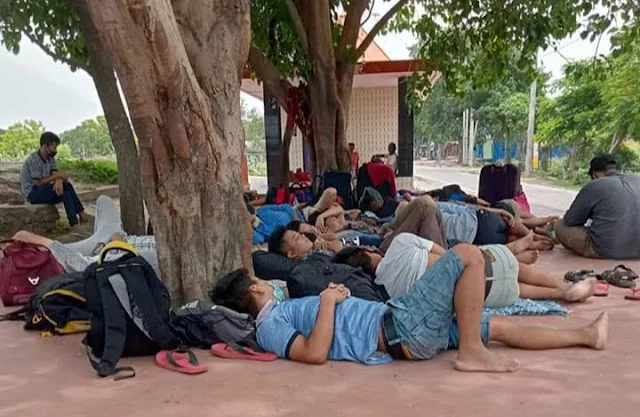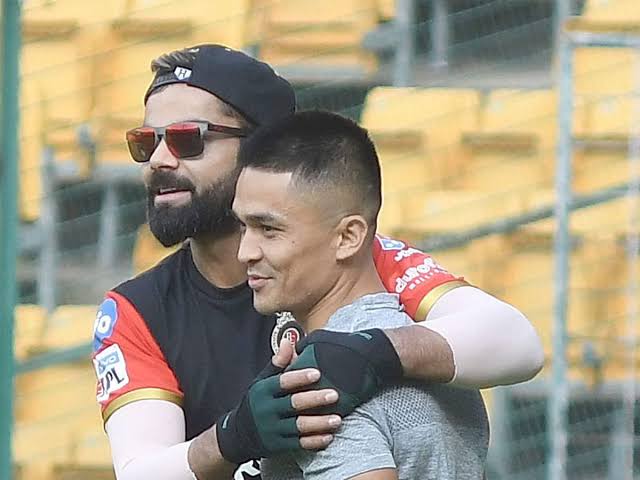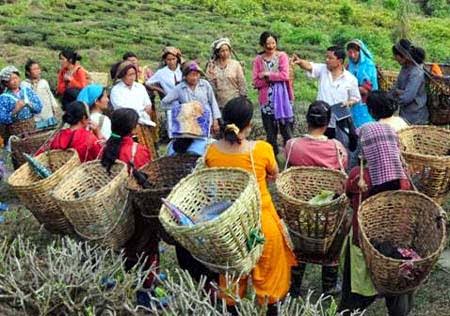 |
| Nepali Bhasa Manyata Diwas celebrated by Gorkha Students, JNU -2015 a file photo |
Although Nepali language has been given recognition by the Indian constitution but whether in practice, it has been able to breed properly in the sub-continent is a big question in itself. It is a sad reality that the West Bengal government has always alienated Nepali language by its power of hegemony and linguistic imposition on the people of the Gorkhaland. Such linguistic imposition is exercised by many clever bureaucratic and cultural tactics which includes forcing the people of Gorkhaland to learn a language(Bengali) which has always been alien to them, denying skilled jobs to Nepali speakers in government offices, changing names of places (roads, streets etc ) that were once in Nepali and introducing the Bengali script to write Nepali .Such is the atrocity meted out to people where Nepali language is an official language. In places where it is not, conditions are even more worse where the majoritarian attitude even denies to recognize the importance of Nepali language or its speakers in their hegemonic paradigm. When many other indigenous language has its healthy space to breed and grow, Nepali language in India is in the verge of endangerment. Even in the most progressive campus of Jawaharlal Nehru University which claims to protect the rights of the history and culture of the oppressed, there is no centre for the learning of Nepali language. The question should be raised as Why a language which is spoken by millions of people in India still do not have a place in JNU or many other big universities in India? It is an irony that a scheduled language in the Indian constitution is facing an act of discrimination and isolation. We have always known that India is a diverse country with many cultures interacting together in peace but such peace seems to exist in fairy tales in school textbooks. In practice it is a majoritarian communal attitude which is spreading its obnoxious tentacles to succumb the rights of the minorities and other oppressed communities. This linguistic and racial discrimination that the Gorkhas face is not a new event. This community has been ignored for centuries and has been recognized only as pawns in battlefields and yet the eyes of the so called progressive forces that fight for all never care to give a look at our plight. Thus, a separate state for the Gorkhas becomes obvious and inevitable in order to protect and preserve the rights of the community by its people so that they do not fell prey to any majoritarian attacks in the future.
Gorkha Students, JNU salutes all revolutionaries who had struggled for their cultural and linguistic identity in the past and whoever are doing so in the present. We demand that the rights of the oppressed communities and nationalities be ensured thereby bringing an end to the majoritarian tyranny in any form anywhere. Please join in large numbers for a public meeting on the history and struggle of the constitutional recognition of Nepali language in India.
Speaker: Prof. Shrawan Acharya, CSRD, JNU
Venue: Godavari Mess, Time: 9:30 PM
GORKHA STUDENTS, JNU

